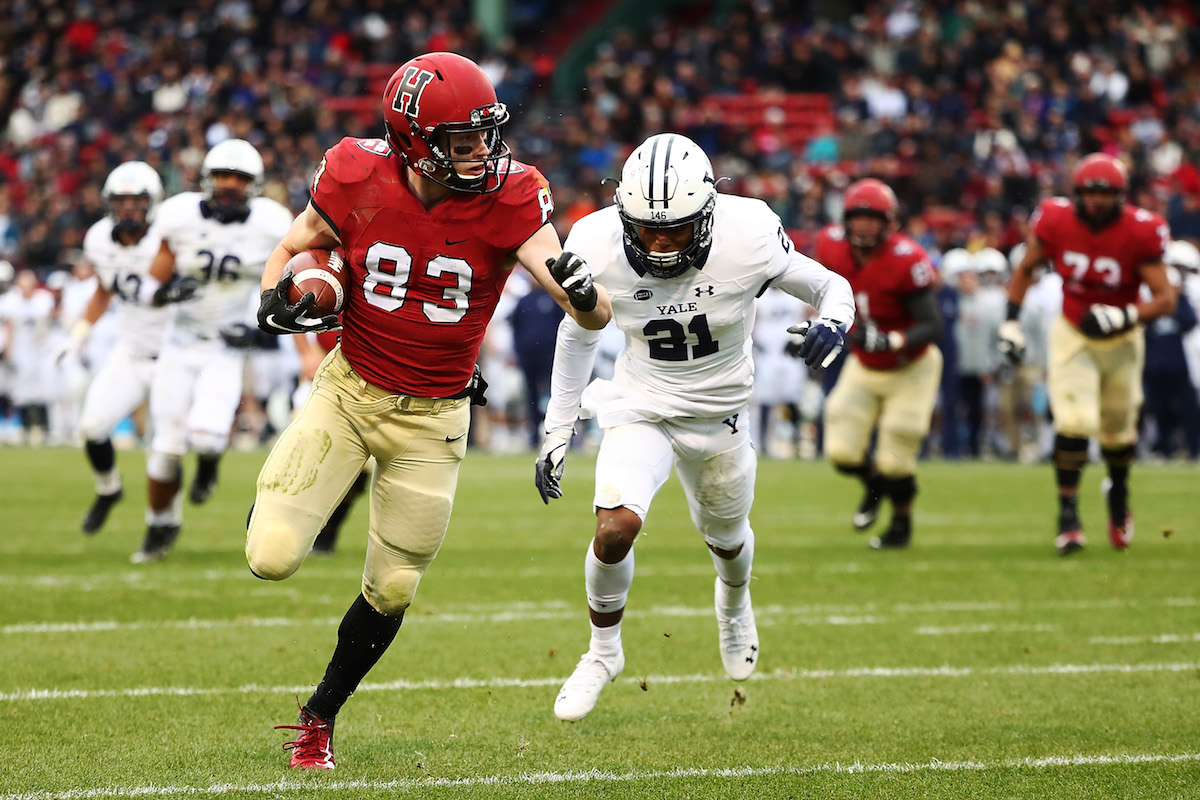Miami, Florida – The NCAA is undergoing a series of changes as the Ivy League has canceled fall sports due to COVID-19. It’s the first Division I conference to do so. The announcement is the latest sign college sports cannot return to business as usual, at least in the short term. Currently, there is no decision regarding winter or spring sports or whether fall sports will be moved to the spring.
The conference based its decision on its collective COVID-19 policies. Although they vary from campus to campus, it has been determined that any fall competition is impractical. The Ivy League also stated that its student-athletes may continue to train on campus in a modified form. Already the conference has undergone budget cuts and it remains to be seen the financial ramifications of this highly anticipated decision.
Another pertinent question is whether anyone else will follow. The Power 5 conferences may or may not ultimately reach this same conclusion, choosing to defer on it for now.
Athletic Director Vicky Chun's statement regarding the Ivy League decision on fall 2020 competition. pic.twitter.com/mf72iZIA8n
— Yale Athletics (@YaleAthletics) July 8, 2020
The Five
In a whirlwind of firsts, the NCAA is seeing lots of movement in response to the growing cases of COVID-19.
The Big Ten on Thursday announced it was going to use a conference only schedule for the fall season, including football. They are the first of the major conferences to implement this change with the ACC being the first to delay the start of all fall sports competitions. The date has been pushed back until at least September 1st. A similar announcement was made by the Patriot League, pushing back its own fall schedule to September 4th.
This comes with the understanding that there will not be a financial penalty for the cancellation of non-conference games.
On Friday, both the ACC and Big 12 said that they will make a decision on their college football schedules in late July. The Pac-12 also decided the same day to move towards a conference only schedule. It’s being reported this decision will delay their fall seasons. The SEC has its own meeting on Monday. There was significant speculation on how the Power 5 majors would react to the Big Ten’s move.
Adapting to the Times
While conferences are facing the harsh realities of a growing pandemic, more schools are making cuts.
Stanford is now cutting 11 of its 36 varsity sports programs. They include men and women’s fencing, field hockey, lightweight rowing, men’s rowing, co-ed and women’s sailing, squash, synchronized swimming, wrestling, and men’s volleyball. The university will honor both scholarship commitments and coaches’ contracts.
“No College Football?” ……… pic.twitter.com/3bGJNyxRp5
— Keena Lynch. (@KeenaLynch27844) July 11, 2020
The school cited that prior to the pandemic their programs were already in a difficult position. Before the cuts, Stanford estimated a best-case scenario of a $25 million deficit for the fiscal year. They also estimated a shortfall of $70 million over the next three years. The alternative was to make broad and deep reductions for all 36 programs including the elimination of scholarships.
Stanford University is not the first to axe these programs but these are the harshest measures to date. The University of Connecticut eliminated four of its own, reducing it to 20 varsity sports.
The University of Houston did not cut any of its sports teams but did reduce all 17 of its sports budgets by 5% in the new fiscal year. The school is also cutting 18 positions, both support-staff and administrative, by the beginning of the 2021 fiscal year in September. Their operating and administrative budgets are also being slashed.
A Ripple Effect
Earlier this week the Centennial Conference announced the suspension of its fall athletics. The Division III conference is exploring the possibility of moving those competitions to the spring.
Over in Division II, the CIAA and SIAC conferences issued a joint statement, ruling out sports in the fall. They are also exploring moving some of the programs affected, including football, to the spring.
It’s been known for some time now a reckoning was coming at universities all across the country. The economic impact of COVID-19 is forcing schools to take drastic action. Cincinnati, Old Dominion, Furman, Bowling Green, even Florida International were some of the first to make cuts. With reported cases in LSU, Ohio State, Wisconsin, and the University of North Carolina, the costs of testing will further strain college budgets.
Presently, all eyes are on the professional leagues hoping to return. Their progress is being closely monitored to see if it’s safe enough to play. Despite the announcement by the Ivy League, FBS is an entirely different animal. For some, the lucrative revenue makes up a vast majority of their budget.
According to the Power 5 commissioners, they’ve been closely coordinating their efforts creating various contingencies. They range from the conference the only model to delaying, even moving the season to spring or no season whatsoever.
As much power as these commissioners wield, the decision might not be up to them. If university presidents decide to not reopen campuses, there will very likely be no season. It’s not known yet what effect, if any, the Ivy League decision will have on the other conferences. If there is no football, expect to see a lot more hard decisions as the revenue dries up. These heartbreaking moves could only be the beginning.
Photo Credit | New York Daily News







More Stories
Nine Panthers Featured On Phil Steele’s All-CUSA Teams
All Transfer Players for the Lady Canes
Miami Women’s Basketball Set to Host Kentucky in 2025 ACC/SEC Challenge